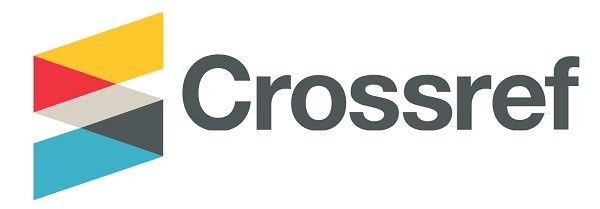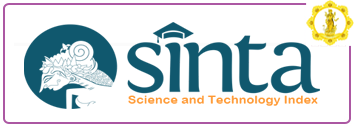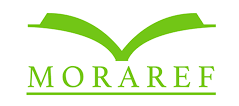LITERASI DIGITAL DAN KEMAMPUAN BERPIKIR KRITIS SEBAGAI KETERAMPILAN DASAR GURU MASA KINI
DOI:
https://doi.org/10.25078/sa.v3i2.3247Keywords:
Digital literacy, digital content, CRAP test.Abstract
Along with technological advances, teachers are also required to be actively involved as users and producers of digital content both in their capacity as individuals and as professional teachers. This demand must be addressed properly by teachers through the development of their digital literacy, but unfortunately there are still many teachers who do not understand the concept and implementation of digital literacy. Digital literacy can essentially be interpreted as the ability to find, use, create, and communicate digital content by involving critical thinking skills in every activity. This article provides an overview of digital literacy with an emphasis on the process and implementation of teachers' critical thinking in interacting with digital content using the CRAP framework. This discussion of digital literacy is based on the concept of Spires and Bartlett (2012) which divides digital literacy into 3 main parts, namely Searching, Creating, and Publishing digital content followed by critical thinking patterns in each of these sections. Good understanding and implementation of digital literacy will be able to assist teachers in carrying out their obligations as professional teachers.
References
Adlin, A. (2019). Analisis Kemampuan Guru Dalam Memanfaatkan Media Bebasis Komputer Pada Pembelajaran Di Sekolah Dasar. Jurnal Imajinasi, 3(2), 30. https://doi.org/10.26858/i.v3i2.12961
American Library Association. (2017). Welcome to ALA’s Literacy Clearinghouse. https://literacy.ala.org/digital-literacy/
Beestrum, M., & Orenic, K. (2008). Wiki-ing your way inTo CollaboraTive learning. LOEX 36th National Conference, 29–33. https://commons.emich.edu/loexconf2008/26
Cullen, T., Hatch, J., Martin, W., Higgins, J. W., & Sheppard, R. (2015). Food literacy: Definition and framework for action. Canadian Journal of Dietetic Practice and Research, 76(3), 140–145. https://doi.org/10.3148/cjdpr-2015-010
Danial, M., & Sanusi, W. (2020). Penyusunan Lembar Kegiatan Peserta Didik (LKPD) berbasis investigasi bagi guru Sekolah Dasar Negeri Parangtambung II Kota Makassar. Prosiding Seminar Nasional Lembaga Penelitian Dan Pengabdian Kepada Masyarakat, 615–619. https://ojs.unm.ac.id/semnaslpm/article/download/11888/7003
Diani, D. R., & Nurhayati, D. S. (2019). Pengembangan Lembar Kerja Peserta Didik (LKPD) Menulis Cerpen Berbasis Aplikasi Android. Jurnal Bahasa, Sastra, Dan Pengajarannya, 7, 2.
Gilster, P. (1997). Digital Literacy. Wiley and Computer Publishing.
Kabakçı, I., Fırat, M., Izmirli, S., & Kuzu, E. B. (2010). Opinions of Teachers on Using Internet Searching Strategies: An Elementary School Case in Turkey. Turkish Online Journal of Qualitative Inquiry, 1(July), 49–61.
Knoble, C., & Lankshear, M. (2008). Digital literacies: concepts, policies and practices. Peter Lang Publishing.
Lanham, R. A. (1995). Digital literacy. Scientific American, 273(3), 198–199.
Noprinda, C. T., & Soleh, S. M. (2019). Pengembangan Lembar Kerja Peserta Didik (LKPD) Berbasis Higher Order Thinking Skill (HOTS). Indonesian Journal of Science and Mathematics Education, 2(2), 168–176. https://doi.org/10.24042/ijsme.v2i2.4342
Prastowo, A. (2014). Panduan Penyusunan LKPD. Diva Press.
Remund, D. L. (2010). Financial literacy explicated: The case for a clearer definition in an increasingly complex economy. Journal of Consumer Affairs, 44(2), 276–295. https://doi.org/10.1111/j.1745-6606.2010.01169.x
Silvana, H., Rullyana, G., & Hadiapurwa, A. (2019). Kebutuhan Informasi Guru Di Era Digital: Studi Kasus Di Sekolah Dasar Labschool Universitas Pendidikan Indonesia. Baca: Jurnal Dokumentasi Dan Informasi, 40(2), 147. https://doi.org/10.14203/j.baca.v40i2.454
Spires, H. A., Medlock Paul, C., & Kerkhoff, S. N. (2018). Digital Literacy for the 21st Century. July, 12–21. https://doi.org/10.4018/978-1-5225-7659-4.ch002
Spires, M., & Bartlett, H. (2012). Digital Literacies and Learning : Designing a Path Forward. In Friday Institute White Paper Series (Vol. 5, Issue June). www.fi.ncsu.edu/whitepapers
Suryaningsih, S., Nurlita, R., Islam, U., Syarif, N., & Jakarta, H. (2021). PENTINGNYA LEMBAR KERJA PESERTA DIDIK ELEKTRONIK ( E-LKPD ) INOVATIF DALAM PROSES PEMBELAJARAN ABAD 21 INFO ARTIKEL. 2(7), 1256–1268.
Umbaryati. (2016). Pentingnya LKPD pada Pendekatan Scientific Pembelajaran Matematika Pentingnya LKPD pada Pendekatan Scientific Pembelajaran Matematika Umbaryati. Prisma, 218–221.
UNESCO, I. for S. (2008). International
Downloads
Published
Issue
Section
License
Copyright (c) 2022 Sang Acharya: Jurnal Profesi Guru

This work is licensed under a Creative Commons Attribution-NonCommercial-NoDerivatives 4.0 International License.












